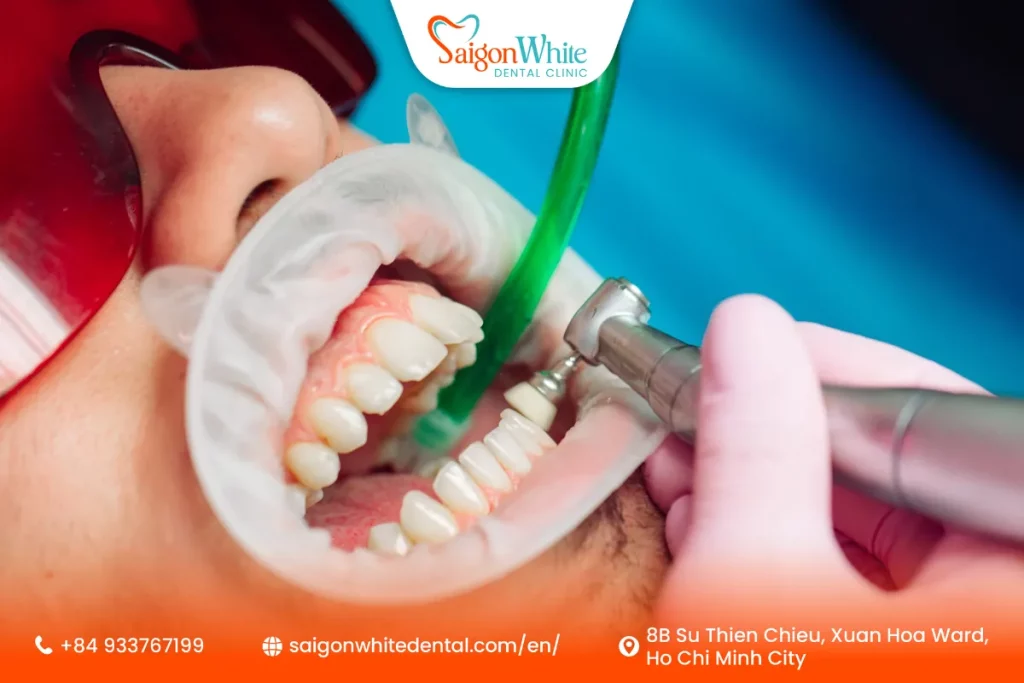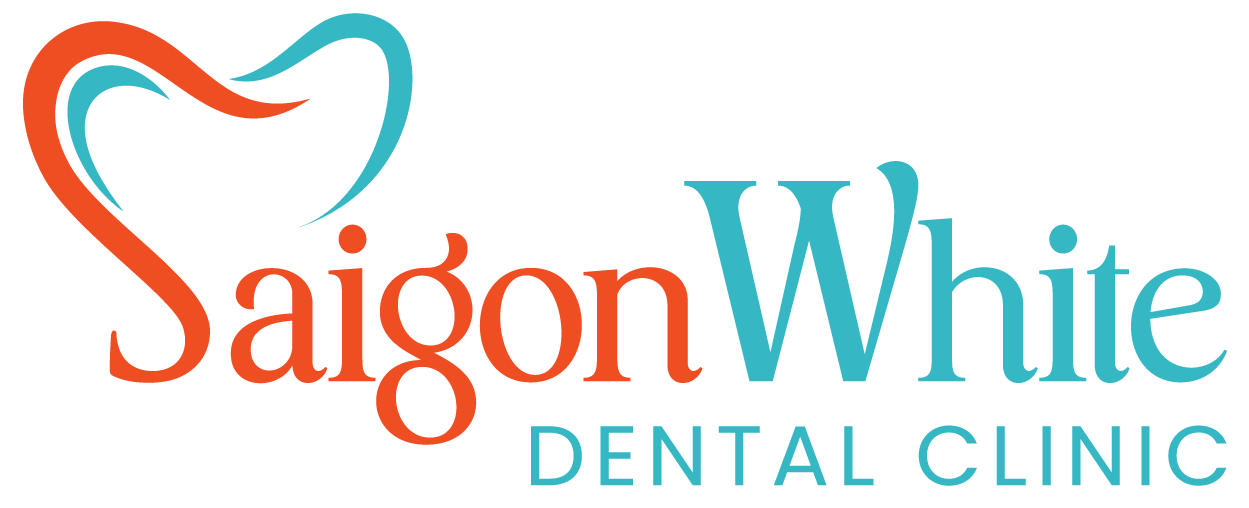Looking to maintain a bright, healthy smile? Professional teeth cleaning is an essential part of any effective oral care routine — going far beyond what brushing and flossing can achieve at home. Over time, plaque and tartar can build up in hard-to-reach areas, putting your teeth and gums at risk.
So, what exactly happens during a professional teeth cleaning? Is it just a surface polish, or is there more to it? In this article, we’ll break down each step of the process, what you can expect during your visit, and why professional cleanings are key to long-term oral health.

What Is a Professional Teeth Cleaning?
A professional teeth cleaning, also known as a prophylaxis, is a preventive dental procedure performed by a licensed dental hygienist or dentist. It goes far beyond what you can achieve with a toothbrush or floss at home.
The purpose of professional cleaning is to:
- Remove plaque and tartar that regular brushing can’t reach
- Prevent gum disease and cavities
- Detect early signs of dental problems like decay, infection, or oral cancer
- Polish and protect the teeth for long-term health and appearance
The American Dental Association (ADA) recommends that most individuals get a dental cleaning every 6 months, though some may need it more frequently based on their oral health.
Benefits of Professional Teeth Cleaning
Teeth cleaning isn’t just about looking good — it’s about protecting your overall health. Here are the key benefits:
1. Prevents Gum Disease and Tooth Decay
Plaque contains bacteria that can lead to gingivitis (early-stage gum disease) and cavities. If left unchecked, it hardens into tartar, which contributes to more severe periodontal disease.
2. Removes Stains for a Whiter Smile
Regular polishing helps eliminate surface stains caused by coffee, tea, wine, or smoking — keeping your teeth looking brighter.
3. Freshens Breath
Persistent bad breath (halitosis) is often due to bacterial buildup. Removing it through cleaning can instantly improve your breath.
4. Early Detection of Dental Issues
Routine exams during cleaning allow your dentist to catch small problems early, such as small cavities, enamel erosion, or oral lesions.
5. Supports Whole-Body Health
Poor oral hygiene has been linked to systemic health issues like heart disease, diabetes, and stroke. Maintaining oral health can support your overall well-being.
What is included in a Professional Teeth Cleaning?
A standard dental cleaning involves several key steps. Each step plays a vital role in ensuring your teeth and gums stay clean, strong, and free from disease.
Let’s break it down:
1. Initial Oral Examination
Before any cleaning begins, the dental hygienist or dentist will examine your mouth using a small mirror and special tools.
They look for:
- Inflamed or bleeding gums
- Plaque and tartar buildup
- Signs of cavities, infection, or recession
- Cracks or damaged fillings
- Any oral abnormalities or suspicious lesions
This is a non-invasive and essential step that helps determine what areas need extra attention and whether deeper cleaning (scaling and root planing) is needed.
2. Scaling (Plaque and Tartar Removal)
This is the heart of the cleaning procedure.
Using a combination of ultrasonic scalers and manual dental tools, the hygienist will gently scrape away:
- Plaque: A sticky film of bacteria
- Tartar (calculus): Hardened plaque that adheres to enamel and gums
Special focus is given to:
- The gumline (where plaque is most likely to collect)
- Between the teeth (especially areas hard to reach with floss)
- Back molars, where tartar buildup is common
This step is crucial for preventing gum disease and tooth loss.
3. Polishing
After scaling, your teeth are polished using a high-powered electric toothbrush and a gritty toothpaste known as prophylaxis paste.
This serves several purposes:
- Smooths the enamel, making it harder for plaque to reattach
- Removes minor surface stains
- Leaves teeth feeling fresh and clean
Polishing does not damage enamel — it’s a safe, gentle process performed by trained professionals.
4. Professional Flossing
Even if you floss daily, professional flossing during cleaning is more thorough.
The hygienist:
- Reaches deeper between the teeth and under the gumline
- Removes any leftover plaque or polish
- Checks for bleeding spots, which may signal gum inflammation
They may also demonstrate proper flossing techniques tailored to your mouth.
5. Rinsing
After polishing and flossing, your mouth is rinsed to remove:
- Loose debris
- Remaining polishing paste
- Any bacteria dislodged during cleaning
You may rinse with plain water or a fluoride-infused mouthwash, depending on the clinic’s protocol.
6. Fluoride Treatment (Optional)
Fluoride treatment is often the final step, especially for those prone to cavities or with sensitive teeth.
The fluoride may come in the form of:
- Gel or foam in a tray placed over the teeth
- Paint-on varnish that dries quickly
- Rinse
Benefits include:
- Strengthening enamel
- Protecting against acid erosion
- Preventing future decay
You’ll be advised to avoid eating or drinking for 30 minutes after fluoride application to maximize its effectiveness.
Does a Dental Cleaning Hurt?
For most people, a dental cleaning does not hurt. It’s a routine and generally comfortable procedure that plays a key role in keeping your teeth and gums healthy.
However, your experience may vary depending on your oral health, sensitivity, and how long it has been since your last cleaning.
What You Might Feel During a Cleaning
Mild Pressure or Scraping
- During the scaling process (removal of plaque and tartar), you may feel light scraping or vibration, especially around the gumline.
- If there is a lot of tartar buildup, this step may take longer and cause mild discomfort.
Tickling or Gritty Sensation During Polishing
Polishing with a gritty toothpaste and a spinning brush might feel unusual, but it is not painful. It leaves your teeth smooth and clean.
Sensitivity During Flossing
If your gums are inflamed or if you don’t floss regularly, professional flossing may cause slight bleeding or sensitivity.
Mild Gum Soreness Afterwards
It’s normal to feel slight tenderness or soreness in the gums for a few hours after the cleaning, especially if deep tartar was removed.
When It Might Hurt More Than Usual
You may experience discomfort if you have:
- Gum disease (gingivitis or periodontitis)
- Excessive tartar or plaque buildup
- Tooth sensitivity or exposed roots
- Inflamed or receding gums
In these cases, the hygienist may perform deeper cleaning (scaling and root planing), which can be more intensive.
Tips to Make Your Cleaning More Comfortable
- Let your hygienist know if you have sensitive teeth or anxiety
- Ask for a topical numbing gel if needed
- Schedule regular cleanings — the more often you go, the easier and more comfortable they become
- Practice good oral hygiene at home to minimize buildup between visits.
How Long Does a Professional Teeth Cleaning Take?
Most cleanings take between 30 and 60 minutes. Several factors affect the duration:
- Amount of plaque and tartar buildup
- Whether you require X-rays or an exam by the dentist
- If it’s your first visit in a while
- Your gum health and sensitivity
Your dentist may recommend a “deep cleaning” (scaling and root planing) if you have advanced gum disease — this takes longer and may require multiple visits.
How Often Should You Get a Professional Cleaning?
Most dental professionals recommend getting a professional teeth cleaning every six months. This twice-a-year schedule helps:
- Prevent gum disease and tooth decay
- Remove tartar that cannot be eliminated by brushing and flossing
- Catch early signs of dental issues before they become serious
- Maintain a fresh, clean smile year-round
However, the ideal frequency depends on your individual oral health needs. Here’s a breakdown:
Every 6 Months – For Most People
- If you have generally healthy teeth and gums
- You maintain good daily oral hygiene
- You have no history of periodontal (gum) disease
Every 3–4 Months – For Higher-Risk Individuals
You may need more frequent cleanings if you:
- Smoke or use tobacco
- Have diabetes or heart disease
- Are pregnant (due to hormonal changes affecting gum health)
- Have braces or Invisalign (harder to clean around appliances)
- Have a history of gum disease or excessive plaque buildup
- Experience dry mouth (reduces saliva that naturally cleans teeth)
As Recommended by Your Dentist
Your dentist may create a personalized cleaning schedule based on your:
- Gum health
- Tartar accumulation
- Oral habits and medical conditions
- Immune response and previous treatments
Aftercare Tips Post-Cleaning
After your professional cleaning, you can return to your normal routine immediately. But here are some tips to help you make the most of your visit:
If You Had Fluoride:
- Avoid eating, drinking, or rinsing for 30 minutes
If You Feel Sensitivity:
- Use sensitive toothpaste
- Avoid extremely hot or cold foods for 24 hours.
- Skip highly acidic or sugary snacks.
Maintain Daily Oral Care:
- Brush twice a day with fluoride toothpaste
- Floss at least once a day
- Rinse with antibacterial mouthwash if recommended.
And of course — don’t forget to book your next appointment before leaving the clinic!
Conclusion
So, what is included in a professional teeth cleaning? A lot more than just brushing and flossing. From a comprehensive oral exam to tartar removal, polishing, flossing, and fluoride protection, a dental cleaning is a multi-step procedure that plays a vital role in your long-term oral health.
Whether it’s your first cleaning in years or part of your routine care, regular professional cleanings help prevent cavities, gum disease, and tooth loss — all while keeping your smile fresh, white, and healthy.
Ready for Your Next Cleaning?
At Saigon White Dental, our team of experienced dentists and hygienists provides gentle and thorough professional cleanings in a modern, comfortable setting. We welcome patients of all ages and offer care tailored to your specific dental needs.
Ready to refresh your smile? Book your appointment today and let us help you maintain a cleaner, healthier mouth — one visit at a time.

 Book now
Book now